Home \ Project News \ I Fight the "AIDS Defense Battle”
Author: Jimu Riga AIDS prevention officer
In our daily work for AIDS prevention, we encountered a husband testing positive in Dimo Township who was extremely uncooperative with our work. Regardless who of us visited him, it put him on the defensive. He even threatened to use force on us who dared to come again. With such a “tartar”, it seemed there was little we can do.
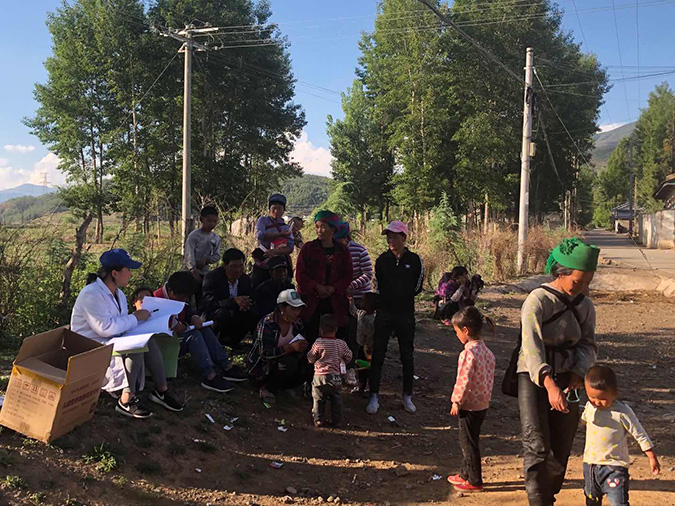
Actually this kind of behavior is called in nursing science “Role Behavior Absence”, meaning confirmed patients are not willing to accept their own illness, and hence more reluctant to let others know the fact.
However, for the sake of their health, especially the patient himself, we finally decided to visit them again. But they still reacted as furiously as they had several times before, taking a dislike to us. They were too emotional for us to start immediately. If we kept on working, it would make things get worse.
So we changed our way of thinking and tried to calm them down first. At that time, I just found that his wife had the same surname as me. Among our compatriots of Yi nationality, people with the same family name are as close as a family. When they found that I didn't mention the work, they gradually dropped their guard. I made small talk with them and we all had a good time. I struck while the iron was hot and seized the moment to give them my phone number and tell them to contact me at any time if they have any difficulty or need.
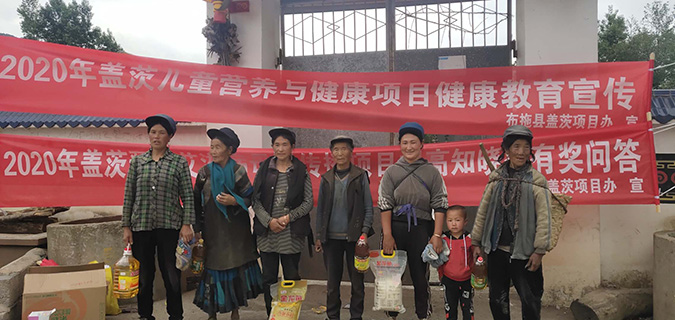
Maybe because his wife and I have the same surname or I didn't talk about the work at the first, they became more willing to believe me than other AIDS prevention personnel or PMTCT staff. In this way, I was very lucky to have successfully mobilized them to take medicine, and now they are very compliant.
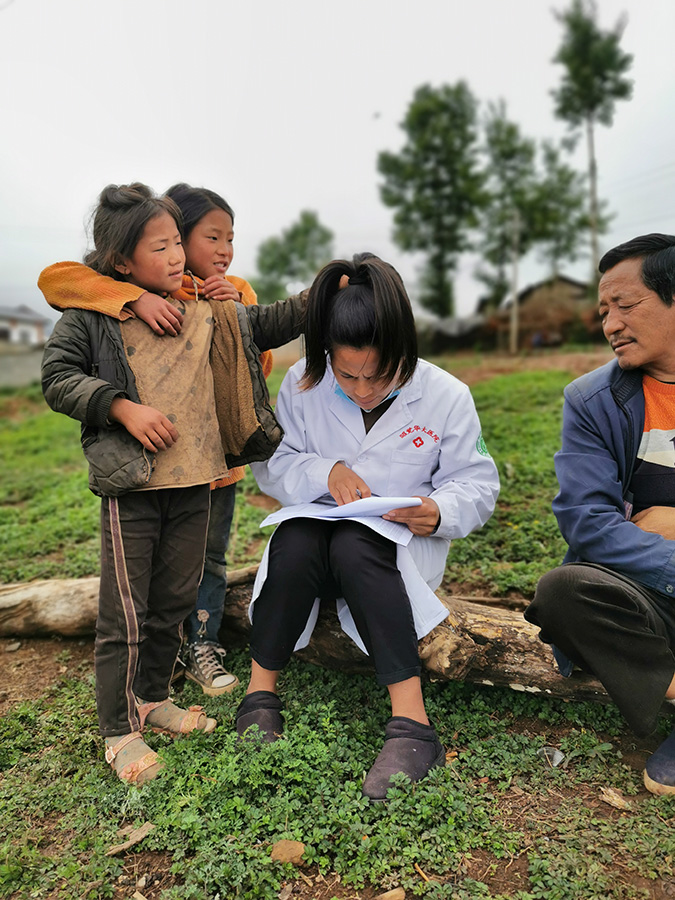
In fact, the work of AIDS prevention is not plain sailing. In addition to encountering such a "tartar", we will face many problems beyond our imagination. However, none of us gives up. By encouraging and helping each other, we can always take the bull by the horns.
The following are the difficulties encountered in our work and the measures we have taken:
(1) During the blood test, the villagers were afraid of pain, and the test was conducted several times a year, so they felt that this was not necessary.
Therefore, we explained the importance of testing to villagers. Of course, if it can be avoided, we will try our best to reduce the frequency of taking blood. For example, the maternal and child health hospital activity "Four Tests and One Treatment" is launched in our township quarterly. At this time, ordinary women of childbearing age who have been tested can be excluded to get re-tested, because the "Four Tests and One Treatment” includes our test items.
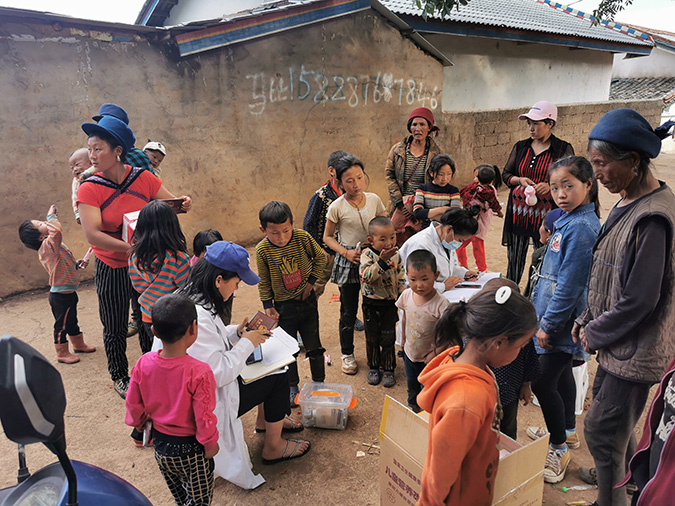
(2) Some people who have had high-risk behaviors will have avoidance attitudes, being afraid to test for AIDS, so that his private matters might get known.
For this group of people, we would patiently tell them that our work has confidentiality agreements. If we leak relevant information, we would not only lose this job, but would also be punished by the law. That would reassure them. There are also some HIV-positive people who were very negative and somewhat pessimistic. For these people, we would tell them a case that had achieved a good treatment effect to make them optimistic.
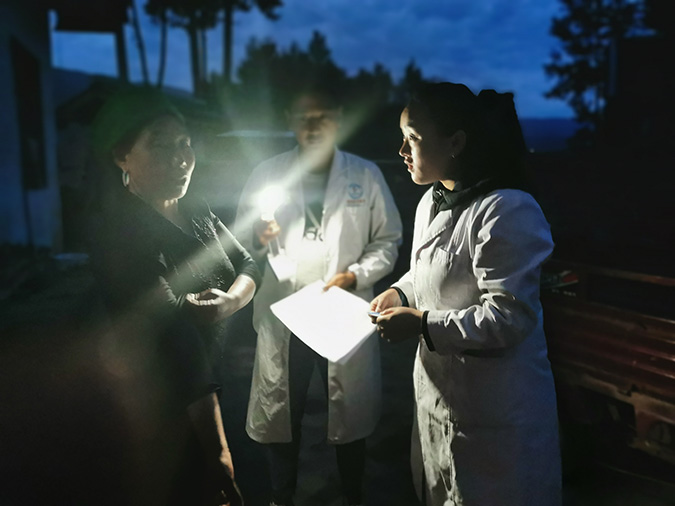
(3) Women of childbearing age who have the desire to have more than one child were always avoiding our pregnancy examination.
First of all, we made it clear that we would not engage in family planning. We only cared about health care to ensure that villagers had a healthy baby and help them get their birth certificates successfully. If they did not finish our HIV testing, then pregnant women could not do get a clean maternal and child health bill and could not obtain the birth certificate, at last, the child would become an unregistered child with no access to schooling or healthcare.
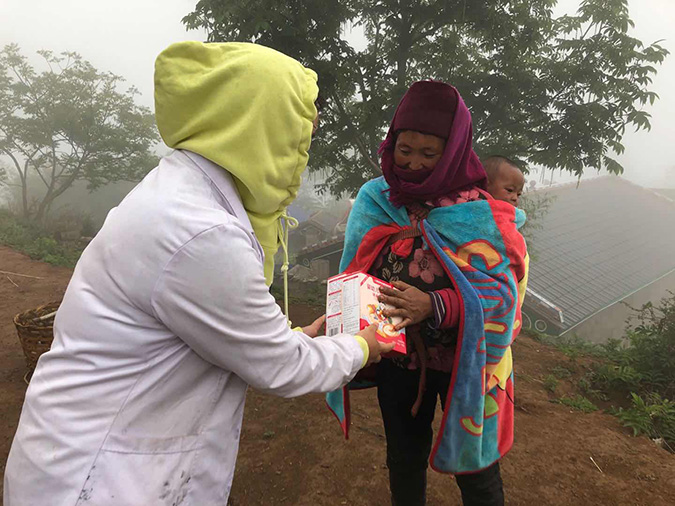
(4) Problems encountered in the distribution of nutrition packages.
Many villagers said that the children would not eat the nutrition package when they took it back. In fact, it was not that children didn't want to eat, but villagers did not take it seriously at all, and thought that nutrition packages were useless. The villagers did not want to receive the nutrition package, and threw it away or even fed the pigs directly after taking it back.
Therefore, we patiently explained the importance of nutrition package to the villagers. Of course, they cannot understand the technical terms such as boosting the kids' immune system. So we introduced the packages to the villagers in a common sense—we would say, if someone else's children who didn't eat nutrition packages will get a bad cold, then your children will get a mild cold if they ate; and if the other children will get a mild cold, then yours will be healthy. In this way, the enthusiasm of the villagers to use the nutrition package has grown.
There were also some villagers reporting that children had diarrhea after eating the nutrition packages, then we consulted the doctors in the Liangshan Maternal & Child Health and Family Planning Center. The doctors explained that this is due to individual differences among children. Some children eat it for the first time and have no problems at all, however, others do have food intolerance symptoms, that is diarrhea, which will recover after the gastrointestinal tract adapts. This process will last about a week. We explained this to the villagers at once so that they could rest assured.
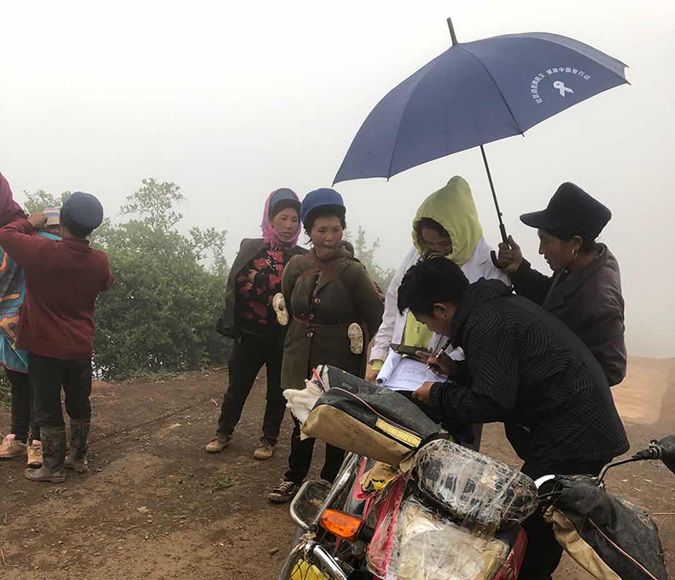
I like this job and I am proud of it, because everything I do can provide aid to people who are in desperate need of help. I am happy to offer my humble effort to the battle of AIDS prevention.
- END -
Project and background:
To boost up efficiency and indogenous power of the “1+M+N”model of HIV/AIDS prevention and control in 10 key townships in Liangshan prefecture, Liangshan Prefecture Center for Maternal and Children Healthcare and Family Planning Service entrusts the Federation for Associations Connected to the International Humana People to People Movement (Switzerland) Sichuan Representative Office to provide technical support to those 10 key townships. The project lasts from July 2019 to April 2020, and one of its key project activities is to screen candidates of potential project officers as Trainers. A series of trainings witness those field officers at the grass roots play a “passing on”, “helping” and “driving” role in PMTCT (“pass on” their professional knowledge or skills to other field officers, “help” their work partners by any chance or in any different field and “driving” new field officers).
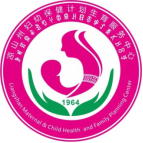
The project is funded by Liangshan Prefecture Center for Maternal and Children Healthcare and Family Planning Service.
Any views or opinions presented are solely those of the author, and do not necessarily represent those of the donor.